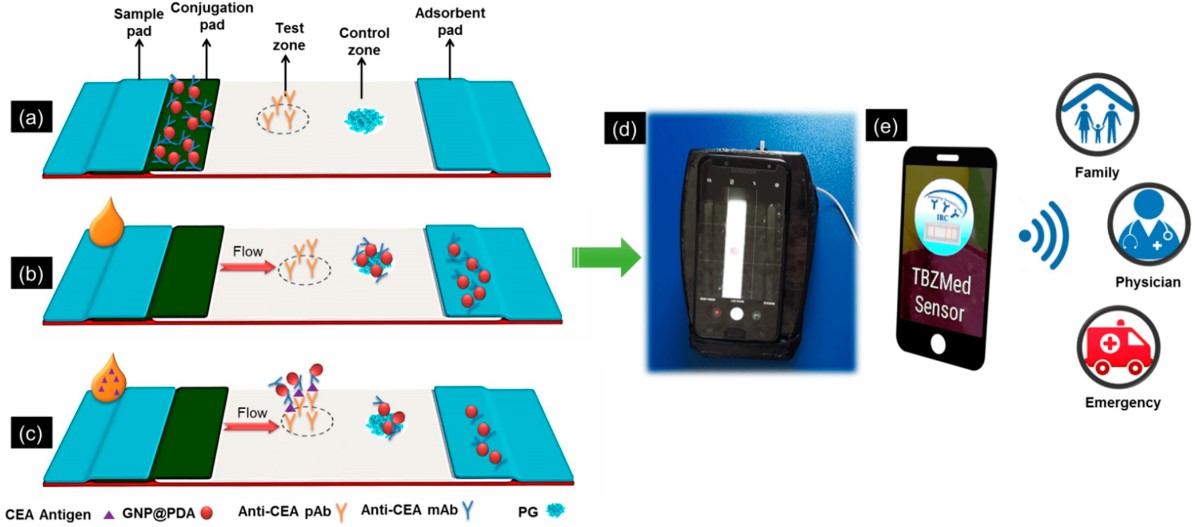CEA Detection Service
With the development in recent years, Creative Biolabs has organized a staff of excellent experts who have rich experience in the detection of tumor markers. We are committed to providing fast and efficient tumor marker detection services to help expedite your project.
Introduction of CEA
Carcinoembryonic antigen (CEA) is an important serological tumor marker in the process of colorectal and some other carcinomas. As a stable molecule, CEA is generally used as the tumor biomarker and prognostic indicator in clinical assays. The level of CEA in the blood of healthy adults is generally low while increased CEA may be a sign of cancer, especially colon cancer and rectal cancer. However, with the development of science, it has been found that abnormal levels of CEA may also present in tumor diseases such as lung cancer, breast cancer, and gastric cancer. CEA detection can be used in the judgment for treatment efficacy, disease monitoring, and prognosis estimation. After tumor resection, the CEA index can significantly decrease and return to normal, but when CEA gradually rises during the treatment process, it is necessary to consider the possibility of uncontrolled tumor or recurrence.
 Fig 1. Schematic diagram of the ready-to-use CEA test strip and its components.1, 2
Fig 1. Schematic diagram of the ready-to-use CEA test strip and its components.1, 2
Applications of CEA Detection
Lung cancer, like all cancers, has a great effect on human health. Since lung cancer is often in the incubation period in the early stage, sensitive and reliable tools are needed for the preclinical diagnosis of lung cancer. In lung cancer, with the growth of tumor cells, cancer cells will release a large amount of DNA, protein, and metabolites as special biomarkers of lung cancer. The level of these biomarkers can represent the stage of lung cancer development. Therefore, the detection of biomarkers can be used for lung cancer screening and clinical diagnosis. Among the various biomarkers of lung cancer, one of the most frequently used is CEA. Several studies have demonstrated that CEA levels are significantly different between breast cancer patients and healthy individuals. This fact provided strong evidence for the potential diagnostic value of CEA in breast cancer. In addition, more and more evidence showed that CEA also plays an important role in the diagnosis of other tumors.
Methods for Detection of CEA
In the early stages of tumors, there are only trace amounts of biomarkers in cancer cells and body fluids. Therefore, it is very important to develop credible and sensitive detection methods. Therefore, extensive efforts have been devoted to the analytical methods for the determination of CEA such as thermal lens microscope, electrochemical immunoassay, fluorometric analysis, photoelectrochemical immunoassay, and chemiluminescence immunoassay. With the development of detection methods, different types of immunosensors were used to detect CEA. Among them, increasing attention has been focused on electrochemical and optical immunosensors due to their low cost, fast response, high sensitivity, easy operation, and miniaturization. Moreover, the fast advancement of nanomaterial-based immunosensors plays an important role in the applications in CEA detection.
In recent years, some new methods for determining CEA serum levels in patients with cancer were introduced, with a high degree of sensitivity and reliability. Creative Biolabs provides a variety of detecting services, including but not limited to Lectin Microarray, MS, HPLC, Flow Cytometry. If you are interested in our services, please don’t hesitate to contact us for more information.
References
-
Mahmoudi, Tohid, et al. "On-site detection of carcinoembryonic antigen in human serum." Biosensors 11.10 (2021): 392.
-
Under Open Access license CC BY 4.0, without modification.
For Research Use Only.
Related Services

 Fig 1. Schematic diagram of the ready-to-use CEA test strip and its components.1, 2
Fig 1. Schematic diagram of the ready-to-use CEA test strip and its components.1, 2

